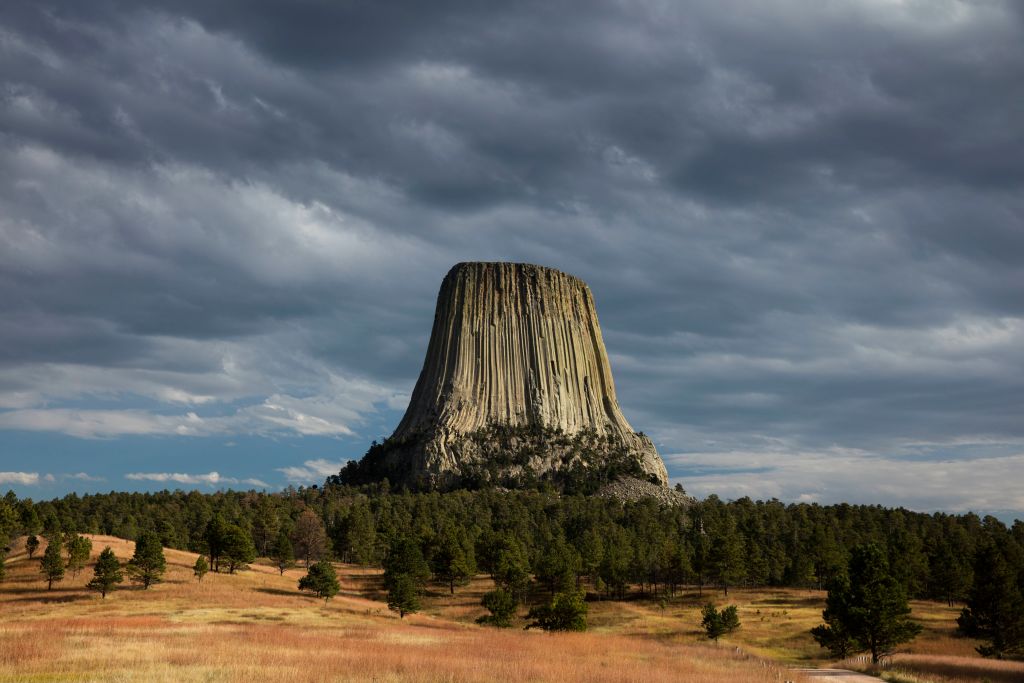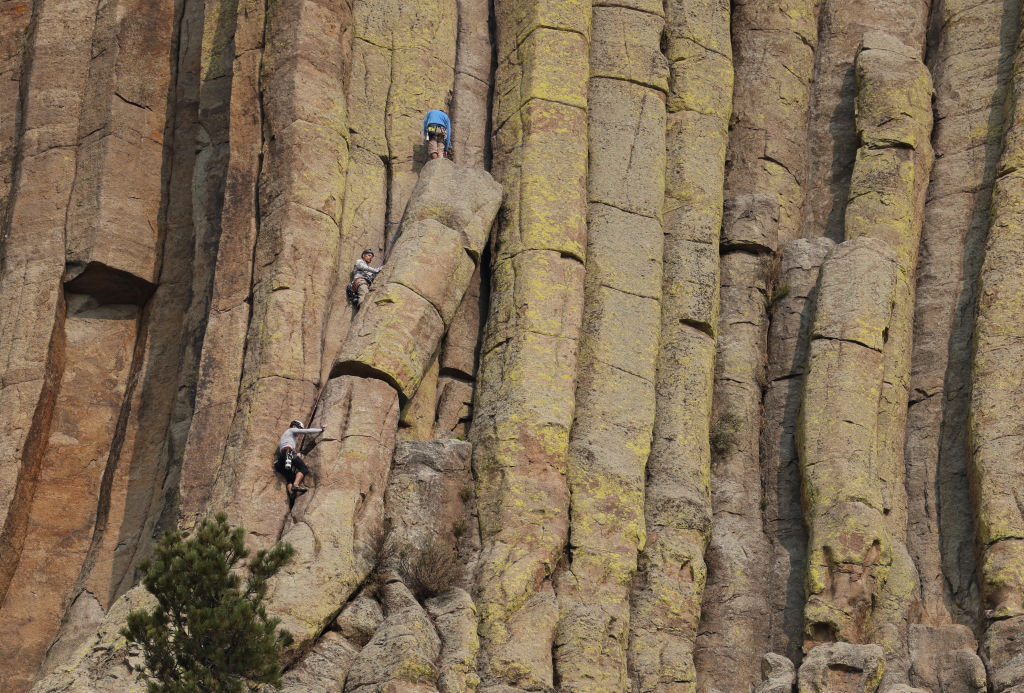A rock climber scaling Wyoming’s Devils Tower National Monument fell to his death last weekend, leaving his partner stranded on a dangerous pitch.

A news release from the National Park Service (NPS) said the duo was climbing the popular geologic feature when one fell while rappelling the second pitch of El Cracko Diablo.
When police arrived at the scene, the man, identified as 21-year-old Stewart Phillip Porter of Eau Claire, Wisc., was pronounced dead.
Rick Strasser, a ranger with the NPS, told the Casper Star-Tribune about the incident: “There wasn’t any equipment malfunction whatsoever, but he was rappelling.”
Porter’s climbing partner, who was not identified, was stranded and subsequently rescued from the Tower’s wall with assistance from Devils Tower Lodge Climbing Guides and Buck Wild Climbing Guides, said the agency.
While climbing fatalities at Devils Tower are “infrequent,” says the NPS, it is still “inherently dangerous.”
In the more than 100 years people have been climbing the landmark, only seven deaths have been reported.

Get breaking National news
The NPS website describes Devils Tower Monument as “an astounding geologic feature that protrudes out of the prairie surrounding the Black Hills. It is considered sacred by Northern Plains Indians and indigenous people.”
It also cites the Tower’s abundance of parallel cracks that make it so popular in the rock climbing community, but warns that it does not test or maintain anchors on the climbing routes.
“The majority of climbing accidents and deaths on the Tower occur during the rappel. The National Park Service does not maintain anchors – inspect all anchors and back them up if necessary. Ensure you know the location of your rappel route before you begin,” officials said.
“Start rappels over the nose of columns to prevent ropes from jamming in cracks. Avoid knocking loose rock onto climbers below. Many rappels require two ropes; know the distance of your planned rappel before beginning.”







_848x480_1522376771957.jpg?w=1200&quality=70&strip=all)

Comments
Want to discuss? Please read our Commenting Policy first.